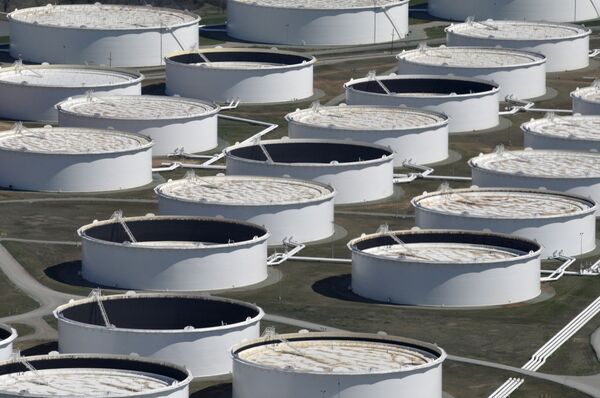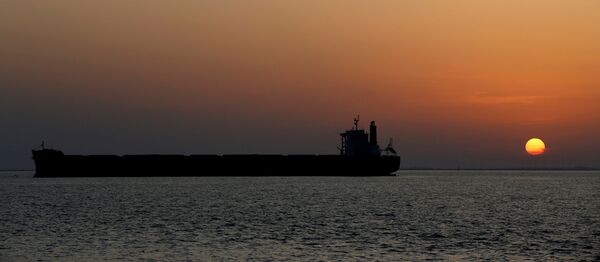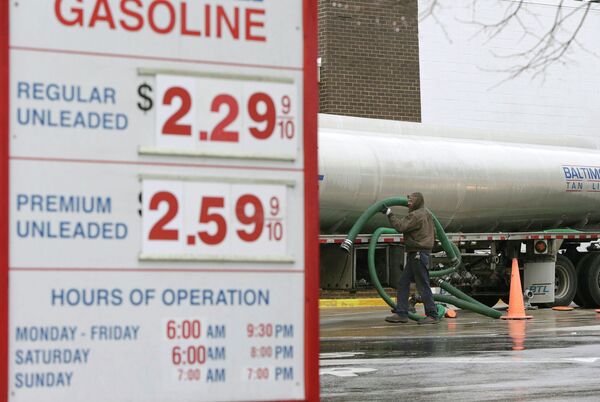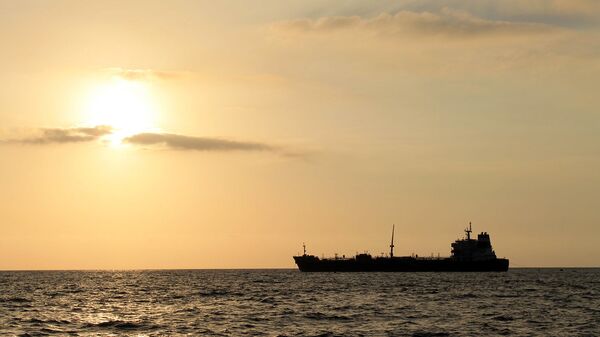An increased number of oil tankers are congesting the Singapore Strait amid oversupply and a global slump in demand for crude triggered by the COVID-19 pandemic, reported Bloomberg.
The number of clean fuel tankers anchored in the narrow waterway off the Singapore shoreline is suggested as being around 60, up from the usual 30-40, according to Rahul Kapoor, head of commodity analytics and research at IHS Markit.
Some vessels are believed to be used for storing fuel, while others wait for directions to head for buyers as the ongoing coronavirus pandemic has crippled economies and brought nations to a standstill over lockdown procedures.
Here's a traffic jam that'll make drivers smile: #Oil tankers piling up at sea.https://t.co/eEHYFj2tmr pic.twitter.com/LWFxWybXQz
— Matt Egan (@MattEganCNN) November 22, 2015
Tankers loaded with everything from petrol to jet fuel are continuing to head towards the Singapore Strait from major refinery hubs like South Korea and China amid plummeting domestic demand and overflowing onshore storage tanks.
However, the city state is struggling with offloading delays that are forcing vessels to reportedly idle for about two weeks instead of the usual 4-5 days to discharge cargoes, according to shipbrokers and traders cited by the outlet.
Storage Space Dwindling Fast
Traders, refiners and diverse infrastructure companies have been scrambling to store fuel in alternatives to onshore tanks amid the oversupply, resorting to pipelines and ships.
The outlet earlier reported that those who secured some onshore storage in Singapore were being charged exorbitant rates, with space no longer leased out to new customers.
“Major fuel-exporting countries are facing difficulties finding homes for their surplus barrels,” Sri Paravaikkarasu, Asia oil head at industry consultant FGE was quoted as saying.
The expert added that processing rates at refineries in Singapore were plummeting, and the current rate of around 60 percent of capacity was forecast as slipping lower, to some 50 percent during the second quarter.

Elsewhere in the region, storage tanks were 95 percent full as of last week in India, with refiners stowing excess fuel in pump stations and depots.
Next Best Option
Resorting to tankers for storing excess fuel has been embraced as the next best option, according to analytics firm Vortexa.
The firm says its data shows floating crude oil storage in Asia currently at a four-year high.
As of 23 April, according to data intelligence firm Kpler, there has been a 45 percent month-on-month increase in the volume of clean fuels, such as naphtha, petrol, jet fuel and diesel, stored on ships.

With data including waters off Singapore and Malaysia, there are some 6.64 million barrels stowed away at sea.
The dramatic demand for both clean tankers, dedicated to moving finished petroleum products, and dirty tankers used to transport crude oil or other black oils, as storage has sent freight rates soaring.
Another option used in the current crisis is slow steaming, when shippers deliberately reduce the speed of tankers to increase the shipments’ transit time.
The strategy allows them to buy time and save fuel while waiting for customers.
Oil Glut
The ongoing COVID-19 pandemic that caused economic activity and travel to grind to a halt has crippled demand for crude and brought about an oil glut.
As oversupply has created an overfilling of storage units, some experts are concerned that the world could run out of storage by May.

Earlier, in trading on 20 April, the price for May crude contracts slipped below zero, breaking new lows for oil prices since 1946.
In an effort to deal with the oversupply and mitigate the fallout for markets, on 12 April Saudi Arabia, Russia and other petroleum-exporting nations within OPEC+ agreed to slash their oil production by 9.7 million barrels per day through June in the single largest output cut in history.




